25 Blue-Chip Stocks That Mutual Fund Managers Love Most
Investors continue to pour money into passive vehicles such as indexed mutual funds and exchange-traded funds.


Profit and prosper with the best of Kiplinger's advice on investing, taxes, retirement, personal finance and much more. Delivered daily. Enter your email in the box and click Sign Me Up.
You are now subscribed
Your newsletter sign-up was successful
Want to add more newsletters?

Delivered daily
Kiplinger Today
Profit and prosper with the best of Kiplinger's advice on investing, taxes, retirement, personal finance and much more delivered daily. Smart money moves start here.

Sent five days a week
Kiplinger A Step Ahead
Get practical help to make better financial decisions in your everyday life, from spending to savings on top deals.

Delivered daily
Kiplinger Closing Bell
Get today's biggest financial and investing headlines delivered to your inbox every day the U.S. stock market is open.

Sent twice a week
Kiplinger Adviser Intel
Financial pros across the country share best practices and fresh tactics to preserve and grow your wealth.

Delivered weekly
Kiplinger Tax Tips
Trim your federal and state tax bills with practical tax-planning and tax-cutting strategies.

Sent twice a week
Kiplinger Retirement Tips
Your twice-a-week guide to planning and enjoying a financially secure and richly rewarding retirement

Sent bimonthly.
Kiplinger Adviser Angle
Insights for advisers, wealth managers and other financial professionals.

Sent twice a week
Kiplinger Investing Weekly
Your twice-a-week roundup of promising stocks, funds, companies and industries you should consider, ones you should avoid, and why.

Sent weekly for six weeks
Kiplinger Invest for Retirement
Your step-by-step six-part series on how to invest for retirement, from devising a successful strategy to exactly which investments to choose.
Investors continue to pour money into passive vehicles such as indexed mutual funds and exchange-traded funds. However, good old-fashioned stock picking and asset allocation with a human touch still rules in some areas – including in the well-trodden world of blue-chip stocks.
After all, actively managed mutual funds run by professional portfolio managers still dwarf their passive cousins. At the end of 2017, actively managed funds had a total of $11.4 trillion in assets under management, according to Morningstar. Passive funds and ETFs controlled $6.7 trillion in assets.
As we’ve noted before, the "smart money" doesn’t always live up to the high fees and hype, but it’s worth keeping tabs on what they’re doing nonetheless. That’s even more true for actively managed mutual funds. After all, they comprise a much larger swath of institutional investor dollars.
Using data from Morningstar Direct, we were able to discover which blue-chip stocks are most widely held by the biggest actively managed U.S. mutual funds. In other words, these are the 25 most popular stock picks among professional portfolio managers.
Not every one of the following stocks is necessarily a buy at current levels, but it’s fair to say that they are all superstar companies. And the most popular pick of all probably will surprise you.
Fund holding rankings as of May 31, 2018. Stock data is as of June 13, 2018. Companies are listed in order of popularity with the largest actively managed mutual funds, according to Morningstar Direct. Dividend yields are calculated by annualizing the most recent quarterly payout and dividing by the share price. Analysts’ ratings provided by Zacks Investment Research.

#25: Pfizer
- Market value: $212.4 billion
- Dividend yield: 3.6%
- Analysts’ opinion: 7 strong buy, 1 buy, 3 hold, 0 sell, 0 strong sell
As a blue-chip health-care stock with a massive market value, Pfizer (PFE, $36.22) is a natural choice for a wide swath of mutual funds seeking a balance of income and growth. For example, at T. Rowe Price (TROW), Pfizer can be found in 41 separate mutual funds, according to S&P Global Market Intelligence. Invesco (IVZ) offers 42 funds with stakes in Pfizer.
The Dow component has hiked its divided annually every year since 2010. At the same time, analysts expect steady, if unspectacular, bottom-line gains. Earnings per share are forecast to rise at an average annual rate of 6.5% for the next half-decade, according to data from Thomson Reuters.
Pfizer has been a market laggard over the past one-, three- and five-year periods, but its massive market value, attendant liquidity and blue-chip status should help maintain its popularity with active portfolio managers.

#24: AbbVie
- Market value: $155.9 billion
- Dividend yield: 3.0%
- Analysts’ opinion: 8 strong buy, 0 buy, 8 hold, 0 sell, 1 strong sell
Pfizer might have a larger market capitalization – and be a Dow stock, to boot – but AbbVie (ABBV, $97.58) is slightly more popular with mutual fund managers.
Top mutual fund holders include American Funds Investment Company of America (AIVSX) and Harbor Capital Appreciation Fund (HACAX).
Known for best sellers like Humira for rheumatoid arthritis and AndroGel, a testosterone replacement therapy, AbbVie was spun off from Abbott Laboratories (ABT) in 2013. Like its parent, AbbVie is a dividend machine; including its time as part of Abbott, AbbVie has hiked its dividend for 46 consecutive years. But it also has better growth prospects, thanks to a pipeline of more than 35 drugs across various stages of clinical trials.
Analysts surveyed by Thomson Reuters expect AbbVie’s earnings to increase an average of 17% a year for the next five years. Abbott, which is in the slower growth medical devices and generic drugs business, has a long-term growth forecast of just 12%.

#23: Medtronic
- Market value: $117.1 billion
- Dividend yield: 2.1%
- Analysts’ opinion: 13 strong buy, 3 buy, 7 hold, 0 sell, 0 strong sell
- Medtronic (MDT, $85.84) has a lot in common with AbbVie. It’s a dividend stalwart, for one thing, having upped its payout every year for 40 consecutive years. It also happens to be a giant in the healthcare sector.
Look around a hospital or doctor’s office – in the U.S. or in about 160 other countries – and there’s a good chance you’ll see Medtronic’s products. That’s because it’s one of the world’s largest makers of medical devices, holding more than 4,600 patents on products ranging from insulin pumps for diabetics to stents used by cardiac surgeons.
When it comes to active managers, Medtronic is popular with Franklin Mutual Global Discovery (MDISX) and Dodge & Cox Stock (DODGX), among numerous other funds.

#22: MasterCard
- Market value: $209.1 billion
- Dividend yield: 0.5%
- Analysts’ opinion: 23 strong buy, 2 buy, 4 hold, 0 sell, 0 strong sell
It seems like everyone loves MasterCard (MA, $199.41). The global payments processor is a major favorite of active mutual fund managers. Just some of the funds taking a shine to the name include Harbor Capital Appreciation Institutional, T. Rowe Price Blue Chip Growth Fund (TRBCX) and Oakmark Fund Investor Class (OAKMX).
MasterCard also happens to have one of the highest average “buy” recommendations among Wall Street analysts. And then there’s the imprimatur of the world’s greatest value investor. Warren Buffett’s Berkshire Hathaway (BRK.B) owns nearly 5 million shares in MasterCard worth about $950 million.
MasterCard has proven to be a wise choice for active managers who, after all, are judged against stock market benchmarks. In the past two years, MA stock has more than doubled, vs. a gain of just 36% for the Standard & Poor’s 500-stock index.
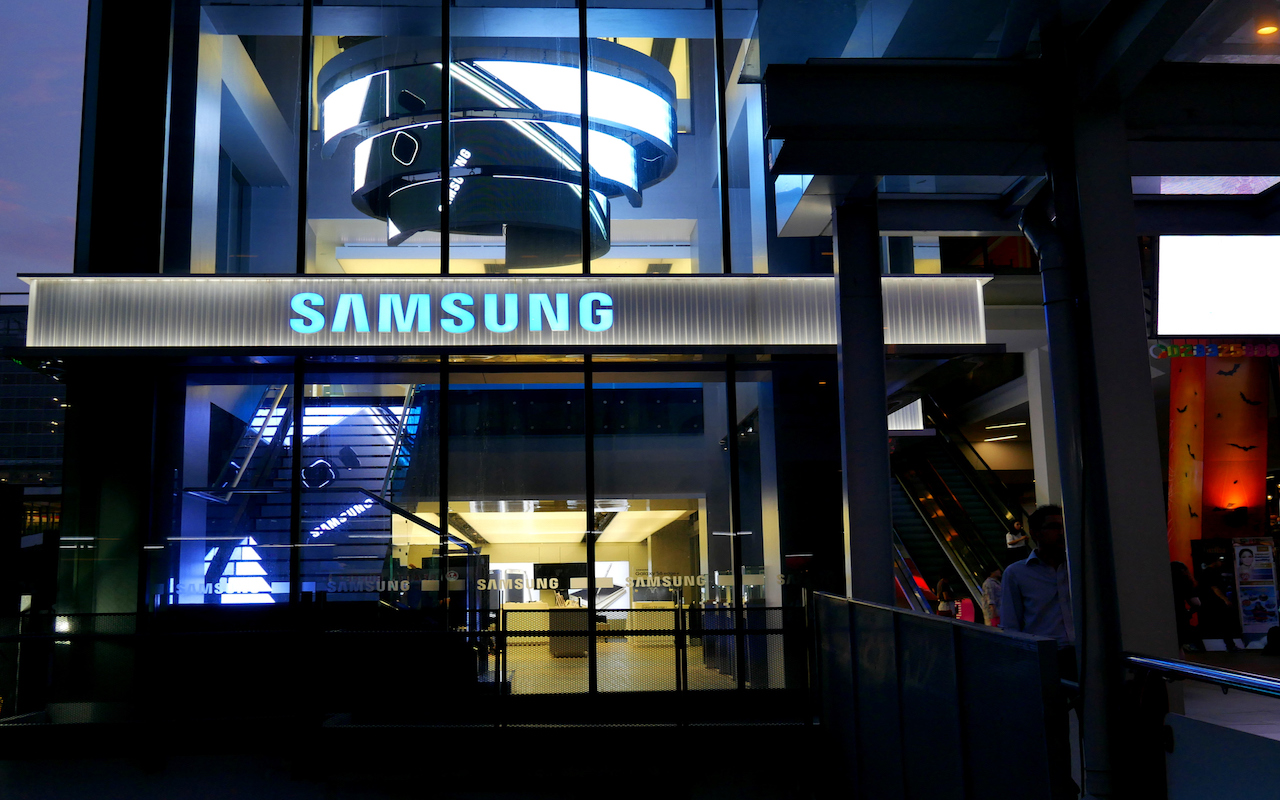
#21: Samsung Electronics
- Market value: $316.7 billion
- Dividend yield: 2.1%
- Analysts’ opinion: N/A
- Samsung Electronics doesn’t trade on a major U.S. exchange. That makes it less accessible to American investors and explains the paucity of sell-side analyst coverage.
The company sure is popular with mutual funds that invest overseas and have their own research teams, however. The massive Korean electronics conglomerate is held by a wide array of active funds, including Dodge & Cox International Stock Fund (DODFX), DFA Emerging Markets Core Equity Portfolio Institutional (DFCEX) and American Funds EuroPacific Growth Fund (AEPGX).
On the Korea Exchange, where it has its primary listing, Samsung’s stock is up 90% over the past three years. For comparison’s sake, America’s technology-heavy Nasdaq Composite Index has gained 52% over the same time.

#20: Boeing
- Market value: $212.2 billion
- Dividend yield: 1.7%
- Analysts’ opinion: 13 strong buy, 0 buy, 6 hold, 0 sell, 0 strong sell
Investors in Boeing (BA, $363.85) may be forgiven if they’re suffering from air sickness this year. Tariff fears have made shares in this longtime Dow Jones Industrial Average component especially volatile of late. And yet for all the recent turbulence, Boeing stock is up 22% for the year-to-date against a gain of just 3% for the S&P 500.
Consistent share-price outperformance helps explain why the aerospace giant is such a popular mutual fund stock pick. Indeed, Boeing has easily beaten the broader market over the last one-, three-, five- and 10-year periods. T. Rowe Price Growth Stock Fund (PRGFX), Harbor Capital Appreciation Fund and T. Rowe Price Blue Chip Growth are just three of the biggest investors to benefit.
With an average recommendation of “Buy,” analysts expect Boeing to keep flying high for the foreseeable future.
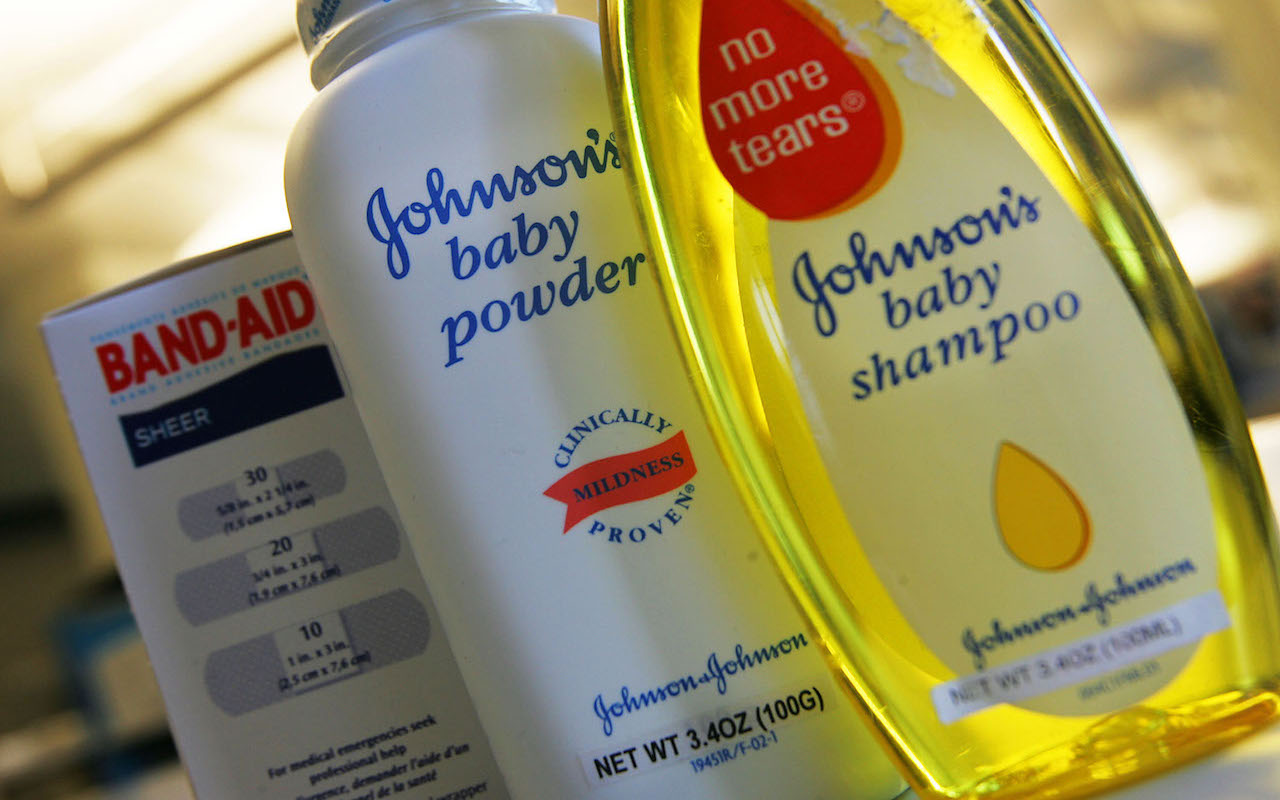
#19: Johnson & Johnson
- Market value: $329.9 billion
- Dividend yield: 2.8%
- Analysts’ opinion: 8 strong buy, 2 buy, 6 hold, 0 sell, 2 strong sell
Dow component Johnson & Johnson (JNJ, $122.63) has had its ups and downs over the years, but there’s a reason it’s the largest health-care stock by market value in the world. From 1944 through 2016, steady growth and a dependable dividend allowed JNJ to deliver an annualized return of 15.5%, making it the seventh-best dividend stock of all time.
That’s a value investor’s dream come true, and helps explains JNJ’s appeal to funds such as MFS Value (MEIAX) and T. Rowe Price Value (TRVLX). Oh, and J&J has hiked its dividend annually since 1963.
JNJ operates in several different areas of health care, including pharmaceutical products and medical devices. The company is best-known, however, for its over-the-counter consumer brands including Listerine mouthwash, Tylenol pain reliever and Johnson’s Baby Shampoo.

#18: Philip Morris International
- Market value: $125.4 billion
- Dividend yield: 5.3%
- Analysts’ opinion: 10 strong buy, 1 buy, 0 hold, 1 sell, 0 strong sell
- Philip Morris International (PM, $80.10), the tobacco company best known for selling Marlboro cigarettes outside of the U.S., pays out a hefty and dependable dividend.
Indeed, with a yield in excess of 5%, it’s only natural that PM would be popular with value and equity income funds. Invesco Diversified Dividend (LCEAX), Franklin Income (FKINX) and American Funds Capital Income (CAIBX) are just three of the more prominent actively managed funds with stakes in the tobacco giant.
Whether investors continue to stay the course with PMI depends in part on the success of its iQos smokeless tobacco gadget. Analysts at Stifel, who rate shares at “Buy,” say iQos, which heats rather than burns tobacco, is set to be a game-changer for the company. Concerns remain, however, about whether it can become a global hit.
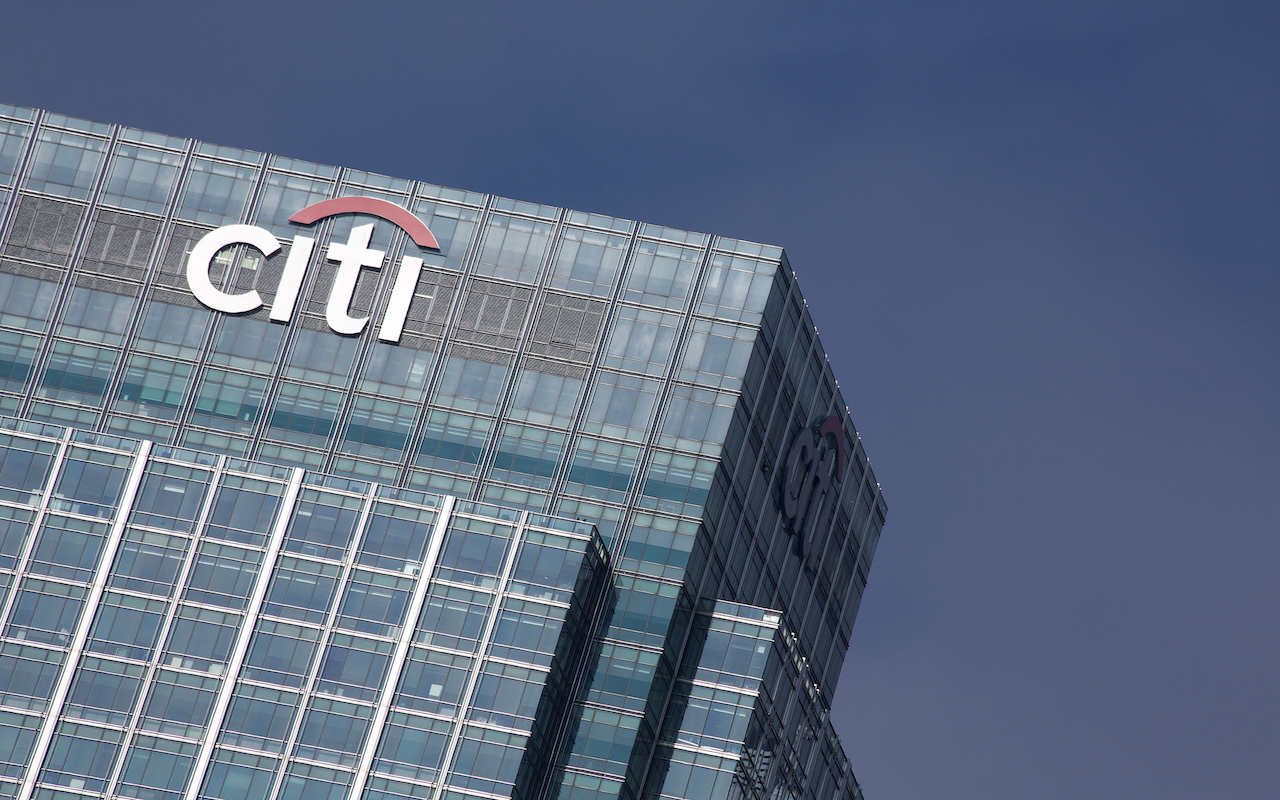
#17: Citigroup
- Market value: $170.8 billion
- Dividend yield: 1.9%
- Analysts’ opinion: 11 strong buy, 1 buy, 5 hold, 0 sell, 1 strong sell
As one of the nation’s largest banks by assets, Citigroup (C, $67.29) is a no-brainer holding for a wide swath of institutional investors. Actively managed mutual funds with significant stakes in the money center bank include Oakmark Fund Investor, Fidelity Contrafund (FCNTX) and T. Rowe Price Equity Income (PRFDX).
Analysts as a group are bullish on Citigroup’s fortunes, even as it’s lagged the broader market by a wide margin in 2018. Shares in the bank were off more than 9% for the year-to-date through June 12 vs. a gain of 3.4% for the S&P 500.
Citibank stocks also lags the broader market over the trailing one-, three- and five-year periods, but its massive market value, share liquidity and central place in the financial system help ensure its popularity among professional asset allocators.
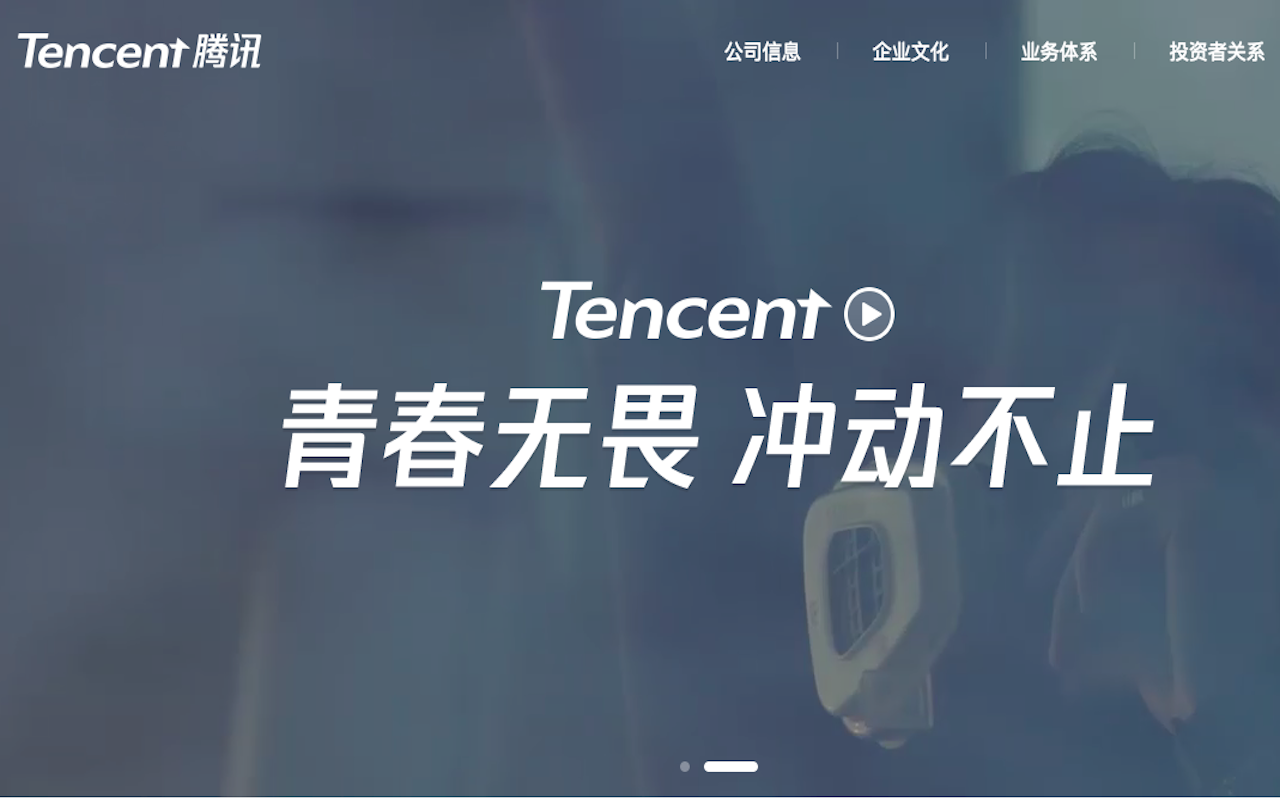
#16: Tencent Holdings
- Market value: $502.1 billion
- Dividend yield: 0.2%
- Analysts’ opinion: 5 strong buy, 0 buy, 0 hold, 0 sell, 0 strong sell
Shares in Tencent Holdings (TCEHY, $52.74) have struggled in 2018, but long-term investors remain bullish on the Chinese internet giant. The company, best known for its WeChat messaging app and as the world’s largest video-game publisher by revenue, has done too well by mutual fund managers for too long for them to lose faith easily.
Shares in the Hong Kong-based company, which trades over-the-counter in the U.S., are down about 3% for the year-to-date. Over the past five years, however, they’re up more than 600%. The Nasdaq gained about 130% during the same span.
That’s the sort of outperformance that helps portfolio managers sleep well at night. Funds with significant investments in Tencent include Oppenheimer Developing Markets A (ODMAX), Harbor Capital Appreciation and T. Rowe Price Blue Chip Growth.
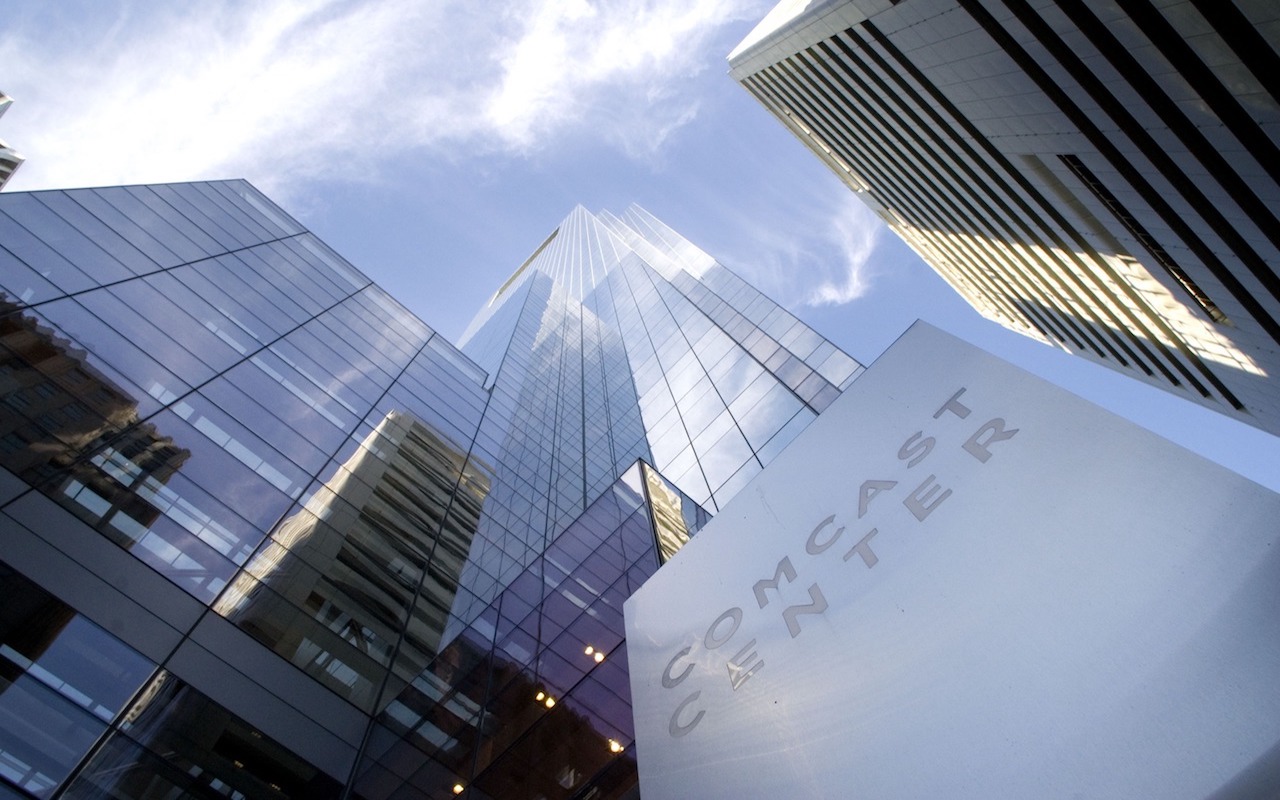
#15: Comcast
- Market value: $153.1 billion
- Dividend yield: 2.1%
- Analysts’ opinion: 15 strong buy, 0 buy, 4 hold, 0 sell, 0 strong sell
Cable and broadband giant Comcast (CMCSA, $32.32), which also owns NBC Universal, is one of Wall Street’s best-rated stocks, so it should come as no surprise that’s it’s highly popular with active fund managers too. Funds with sizable stakes include Dodge & Cox Stock, Oakmark Investor and First Eagle Global (SGENX).
Comcast also happens to land on the list of 50 best stocks of all time. The cable and media company generated an annualized return of 12.4% from 2002 to 2016. That was good for lifetime wealth creation of $147.0 billion.
Comcast’s $65 billion offer for the entertainment assets of 21st Century Fox (FOXA) creates uncertainty for the moment. A bidding war with Walt Disney (DIS) isn’t necessarily good for CMCSA’s short-term prospects. Longer-term, however, Comcast’s expansive vision is part of what make it attractive to institutional investors.
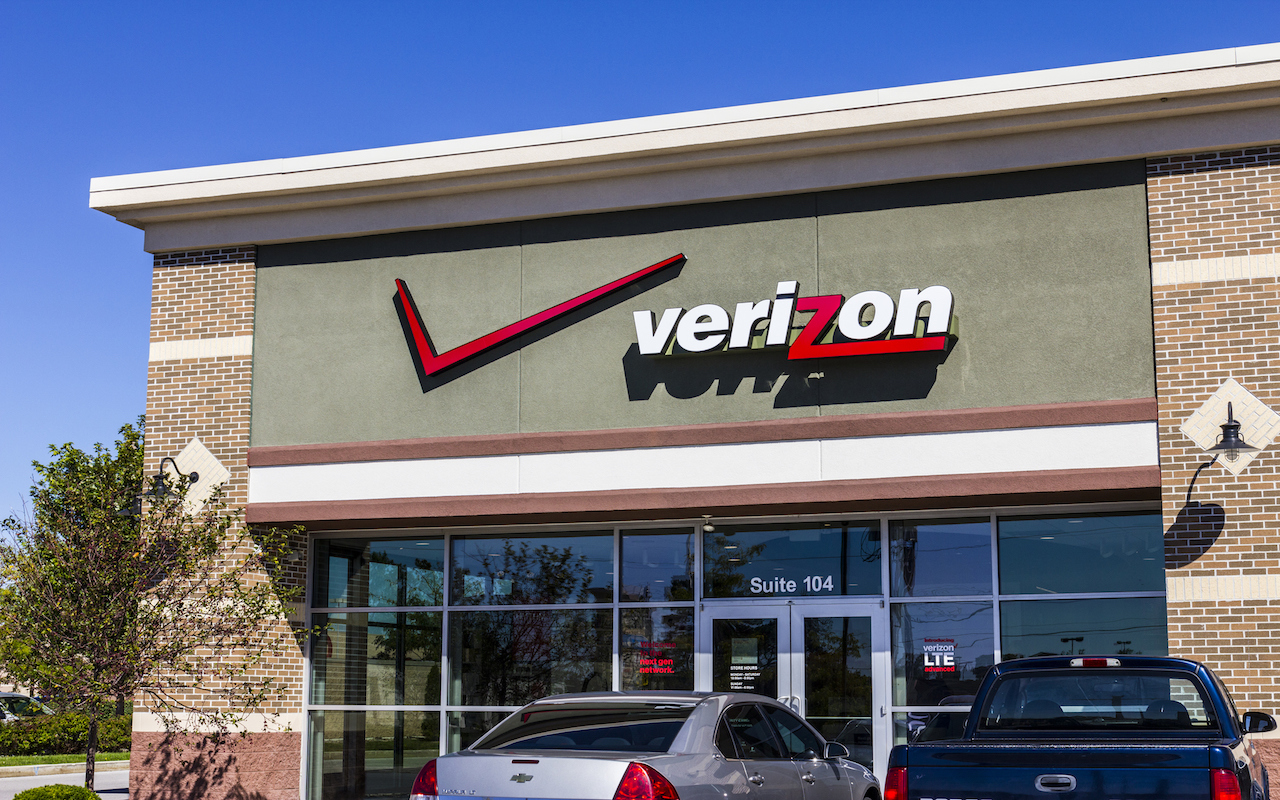
#14: Verizon
- Market value: $195.9 billion
- Dividend yield: 5.0%
- Analysts’ opinion: 10 strong buy, 1 buy, 9 hold, 0 sell, 0 strong sell
Whether you’re playing defense or just looking for dividends, you can’t really ignore Verizon (VZ, $47.40). The telecommunications giant is as blue-chip as they come. Indeed, it’s the sole telecom in the Dow Jones Industrial Average. It’s also a Dividend Achiever, having hiked its payout every year since 2007.
The company has a convoluted history. Verizon came out of the 1980s federal break-up of the old AT&T (T) on antitrust grounds. The company was initially known as Bell Atlantic. The name changed to Verizon as part of the 2000 merger of Bell Atlantic and GTE.
Through it all, however, it has proven to be one of the 50 best stocks of all time. From 1984 to 2016, VZ delivered an annualized return of 11.2%, which created $165.1 billion in wealth.
Funds with sizable stakes include American Funds American Mutual (AMRMX) and T. Rowe Price Equity Income

#13: Netflix
- Market value: $169.7 billion
- Dividend yield: N/A
- Analysts’ opinion: 18 strong buy, 3 buy, 12 hold, 0 sell, 1 strong sell
No wonder active managers love Netflix (NFLX, $379.93). Shares in the streaming media company have crushed the broader market over the trailing one-, three- and five-year periods. One the last five years alone, NFLX is up more than 1,150%. The Nasdaq gained 129% over the same span.
American Funds The New Economy (ANEFX), Fidelity Growth Company (FDGRX) and T. Rowe Price New Horizons (PRNHX) are just three of the many funds that have a piece of the Netflix action.
Whether NFLX stock can maintain its torrid pace remains to be seen, but analysts are certainly optimistic about its bottom-line prospects. The Street forecasts average annual earnings growth of 63% for the next five years, according to data from Thomson Reuters.

#12: Bank of America
- Market value: $299.9 billion
- Dividend yield: 1.6%
- Analysts’ opinion: 8 strong buy, 2 buy, 7 hold, 0 sell, 0 strong sell
It’s fair to say that Bank of America (BAC, $29.84) is popular with pretty much everyone. Not only is it one of the most popular stocks among active mutual fund managers, it’s beloved by hedge funds and billionaire Warren Buffett too.
BofA has been the best-performing big bank stock of the past few years, and now rising interest rates and lower taxes could give it more room to run. Shares in BAC are up 72% over the past three years ended June 12. JPMorgan Chase (JPM) gained 58% over the same time frame, while Citigroup added just 19%. Wells Fargo & Co. (WFC), hamstrung by scandal, was off nearly 4%.
Mutual funds with relatively ample holdings include Dodge & Cox Stock and Oakmark Fund Investor. Perhaps most reassuringly, Warren Buffett’s Berkshire Hathaway owns a 6.6% stake in Bank of America, making it one of the Oracle of Omaha’s biggest bets.

#11: Visa
- Market value: $312.1 billion
- Dividend yield: 0.6%
- Analysts’ opinion: 25 strong buy, 2 buy, 1 hold, 0 sell, 0 strong sell
Wall Street analysts are gaga for Visa (V, $134.40), as are hedge funds. Warren Buffett’s Berkshire Hathaway has a stake too. It should come as no surprise then that active fund managers are keen on the payments processor, as well.
As the world’s largest payments network, the company is well-positioned to benefit from the growth of cashless transactions and digital mobile payments. Indeed, analysts polled by Thomson Reuters expect Visa’s earnings to increase an average of 18% a year over the next half-decade. T. Rowe Price Blue Chip Growth, T. Rowe Price Growth Stock, T. Rowe Price Capital Appreciation (PRWCX) and Fidelity Puritan (FPURX) are just some of the big-name funds with stakes.
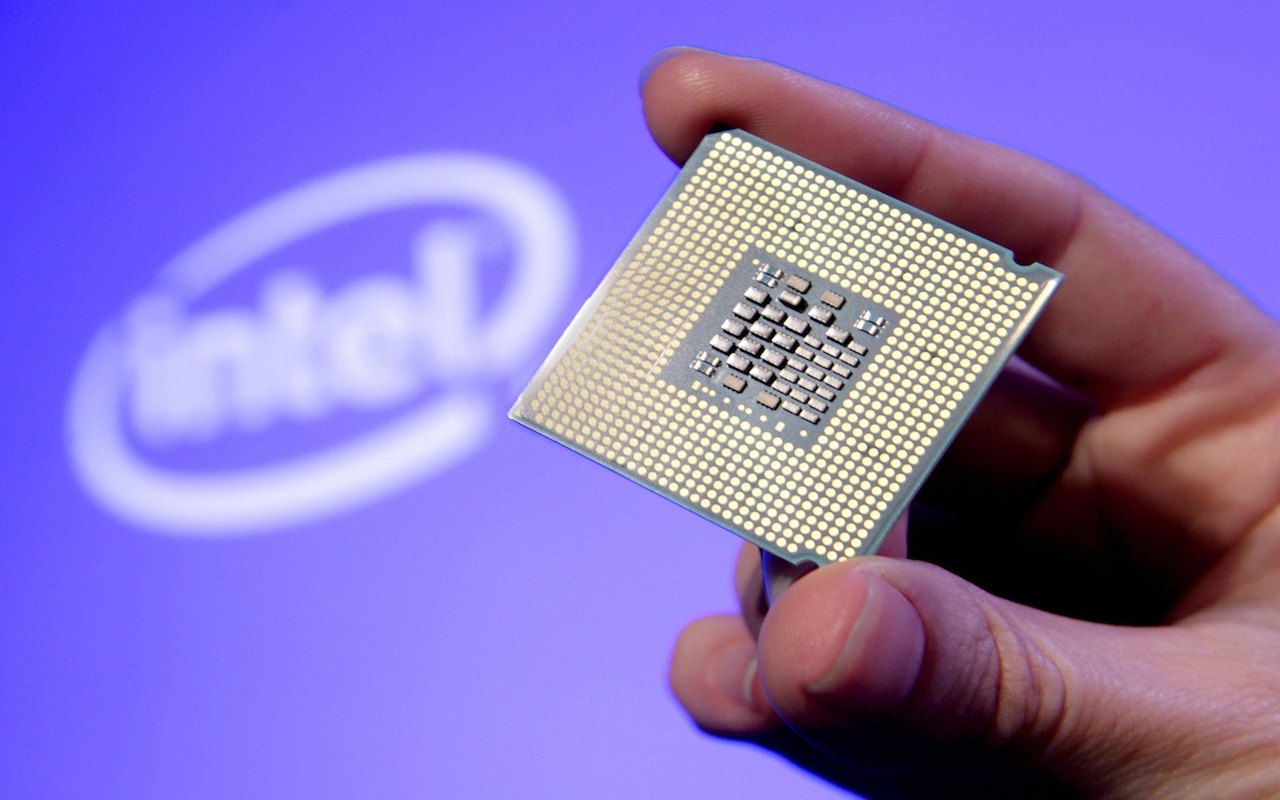
#10: Intel
- Market value: $258.5 billion
- Dividend yield: 2.1%
- Analysts’ opinion: 15 strong buy, 2 buy, 10 hold, 1 sell, 0 strong sell
As a mega-cap, blue-chip technology stock, it’s hard for the big money to avoid Intel (INTC, $55.03), even if analysts tend to be somewhat split on INTC’s prospects for outperformance.
Well-known mutual funds holding the Dow component include DFA US Large Cap Value (DFLVX), American Funds Washington Mutual (AWSHX) and T. Rowe Price Value.
Although INTC has beaten the Nasdaq over the past one- and three-year periods, some analysts think it’s set to cool off. Intel remains the biggest player in making CPUs for back-end servers, which are very much in demand to power the rapid shift to cloud-based computing. But the latest upgrade cycle may have peaked, say analysts at Stifel, who rate shares at “Hold.”

#9: Alibaba
- Market value: $539.8 billion
- Dividend yield: N/A
- Analysts’ opinion: 18 strong buy, 2 buy, 0 hold, 0 sell, 0 strong sell
If mutual fund managers like Tencent, they love Alibaba (BABA, $206.62). The Chinese e-commerce giant is willing to invest heavily in its own business to drive growth and enjoys expanding markets for its goods and services. And Alibaba is more than just an e-commerce platform for third-party sellers – its tentacles spread to cloud computing services, payments, media and navigation.
Analysts expect the company’s revenue to rise almost 60% this year, according to a survey by Thomson Reuters. They forecast a sales gain of 38% next year, too. Meanwhile, BABA stock is up 14% for the year-to-date through June 12, vs. a gain of just 3% for the S&P 500.
That’s music to any portfolio manager’s ear. Active funds with stakes in this popular stock include Oppenheimer Developing Markets and T. Rowe Price Blue Chip Growth.

#8: Alphabet
- Market value: $805.4 billion
- Dividend yield: N/A
- Analysts’ opinion: 22 strong buy, 4 buy, 2 hold, 0 sell, 0 strong sell
Hedge funds and analysts love Google-parent Alphabet (GOOGL, $1,144.23), and so naturally active mutual fund managers do too. Just look at T. Rowe Price Blue Chip Growth, Fidelity Puritan or any dozens of other major funds and you’ll find GOOGL in the mix.
The Google search engine is Alphabet’s most important business, but not its only one. Alphabet is also home to self-driving car startup Waymo, and Nest Labs, a developer of gadgets for the Internet of Things. It has artificial intelligence, machine learning and virtual reality in its sights, and it’s already a major player in cloud-based services.
Most importantly, Google owns commanding market share in the fast-growing digital advertising industry. Indeed, the Google-Facebook (FB) duopoly attracted 84% of global spending on digital ads last year, excluding China.

#7: Facebook
- Market value: $563.3 billion
- Dividend yield: N/A
- Analysts’ opinion: 24 strong buy, 3 buy, 1 hold, 0 sell, 0 strong sell
Privacy concerns and growing fears of regulation haven’t really dented Facebook’s (FB, $192.41) popularity with mutual fund managers, hedge fund managers or analysts. At least not yet. And with good reason. The bottom line is that the world’s most popular social network has more than 2.1 billion active users, and advertisers are keen to reach all those eyeballs.
Analysts at Stifel, who rate shares at “Buy,” remind clients: “Facebook is a dominant social platform that’s continuing to gain an impressive share of ad budgets and consumer engagement every year.” Instagram, video and messaging services such as Messenger and WhatsApp will fuel revenue growth too.
Facebook, with projected average annual earnings growth of 26% for the next five years, is a must-have stock for active managers. Big funds with significant stakes include Fidelity Contrafund, T. Rowe Price Blue Chip Growth and Fidelity Blue Chip Growth (FBGRX).

#6: Wells Fargo
- Market value: $267.8 billion
- Dividend yield: 2.8%
- Analysts’ opinion: 10 strong buy, 0 buy, 9 hold, 1 sell, 4 strong sell
Despite a seemingly never-ending stream of bad press, Wells Fargo (WFC, $55.16) remains popular with hedge funds, a plurality of analysts, Warren Buffett and active mutual fund managers too.
As we noted in February, hedge funds continue to stick by the bank, even as its scandal nightmare approaches its two-year anniversary. In the latest developments since phony accounts were first discovered in 2016, federal regulators in April fined Wells Fargo $1 billion for abuses in its mortgage and car insurance businesses.
Nevertheless, Warren Buffett’s Berkshire Hathaway remains the bank’s top shareholder with a 9.9% stake. Mutual funds such as Dodge & Cox Stock, T. Rowe Price Equity Income and Franklin Income have stood by Wells Fargo too.

#5: UnitedHealth Group
- Market value: $245.4 billion
- Dividend yield: 1.2%
- Analysts’ opinion: 16 strong buy, 1 buy, 0 hold, 0 sell, 0 strong sell
- UnitedHealth Group (UNH, $252.87) is so big it basically has to be a mutual fund favorite.
With roughly $245 billion in market value and an expected $226 billion in annual sales this year, UnitedHealth is the largest publicly traded health insurance company by a wide margin. UNH’s sheer size – and the related liquidity of its shares – makes it almost unavoidable for institutional investors of all stripes. Meanwhile, Wall Street analysts like its growth prospects. Earnings are forecast to grow at an average clip of 16% a year for the next five years, according to Thomson Reuters data.
UnitedHealth’s girth stems from a long history of mergers and acquisitions – including MetraHealth, HealthWise of America and AmeriChoice – and stock-price outperformance.
Well-known funds benefiting from UNH’s winning ways include Fidelity Low-Priced Stock (FLPSX), Fidelity Contrafund, T. Rowe Price Blue Chip Growth and American Funds Washington Mutual.

#4: Apple
- Market value: $936.5 billion
- Dividend yield: 1.4%
- Analysts’ opinion: 13 strong buy, 0 buy, 14 hold, 0 sell, 1 strong sell
- Apple (AAPL, $190.70), the largest publicly traded company in the world by market value, is very popular with mutual funds. It’s also a smash hit with hedge funds, analysts, Warren Buffett … you name it. Mutual funds with significant stakes in AAPL include Fidelity Blue Chip Growth, Fidelity Growth Company (FDGRX), Strategic Advisers Core and T. Rowe Price Growth Stock.
Well, duh.
These fund managers couldn’t be in better company. Warren Buffett absolutely adores Apple. Indeed, the chairman and CEO of Berkshire Hathaway upped his company’s stake in the iPhone-maker by 45% during the quarter ended March 31.
Berkshire now owns 4.9% of Apple’s outstanding shares, making it the company’s third-largest shareholder after fund providers Vanguard Group and BlackRock (BLK), according to data from S&P Global Market Intelligence.
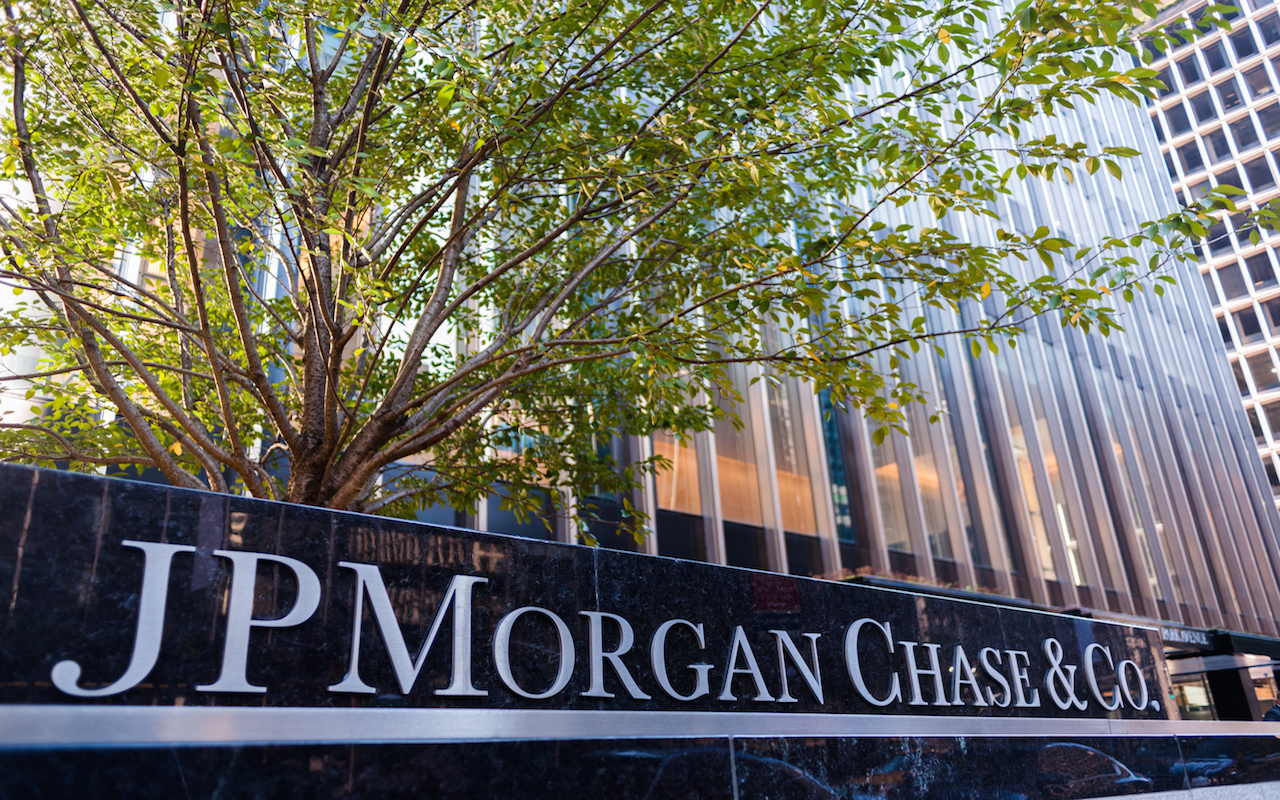
#3: JPMorgan Chase
- Market value: $367.9 billion
- Dividend yield: 2.0%
- Analysts’ opinion: 8 strong buy, 1 buy, 9 hold, 0 sell, 0 strong sell
As the nation’s biggest bank by both assets and market value, JPMorgan Chase (JPM, $109.97) pretty much must be one of the most popular stocks of portfolio managers. They can’t really bet on the financial sector – or the U.S. economy – without it.
Top active mutual funds holders include MFS Value, T. Rowe Price Value, T. Rowe Price Equity Income and Dodge & Cox Stock.
Analysts are essentially split on whether JPM a buy or a hold at current levels, but it’s been a solid outperformer for active portfolio managers in the past. Indeed, shares have beaten the S&P 500 by wide margins over the past one-, three-, five- and 10-year periods. For the 52 weeks ended June 12, JPM is up 26% vs. a gain of 14% for that broad market benchmark.

#2: Amazon.com
- Market value: $831.2 billion
- Dividend yield: N/A
- Analysts’ opinion: 29 strong buy, 2 buy, 1 hold, 0 sell, 1 strong sell
Wall Street analysts love Amazon.com (AMZN, $1,704.86). Hedge funds do too. Is it any wonder that the e-commerce behemoth is beloved by active mutual fund managers, as well?
Analysts expect Amazon’s revenue to grow 34% to $237 billion this year, according to a survey by Thomson Reuters. Projections call for another 22% increase next year to $290 billion. At the same time, Amazon, a company that did not prioritize profits for a very long time, is forecast to generate average earnings growth of 27% a year for the next five years.
“While the valuation is looking somewhat more stretched over the past few months, the fundamental momentum remains about as strong as it could be,” note analysts at Canaccord Genuity, who rate shares at “Buy.”
Top active mutual funds holders include T. Rowe Price Blue Chip Growth, Fidelity Blue Chip Growth and T. Rowe Price Growth Stock.
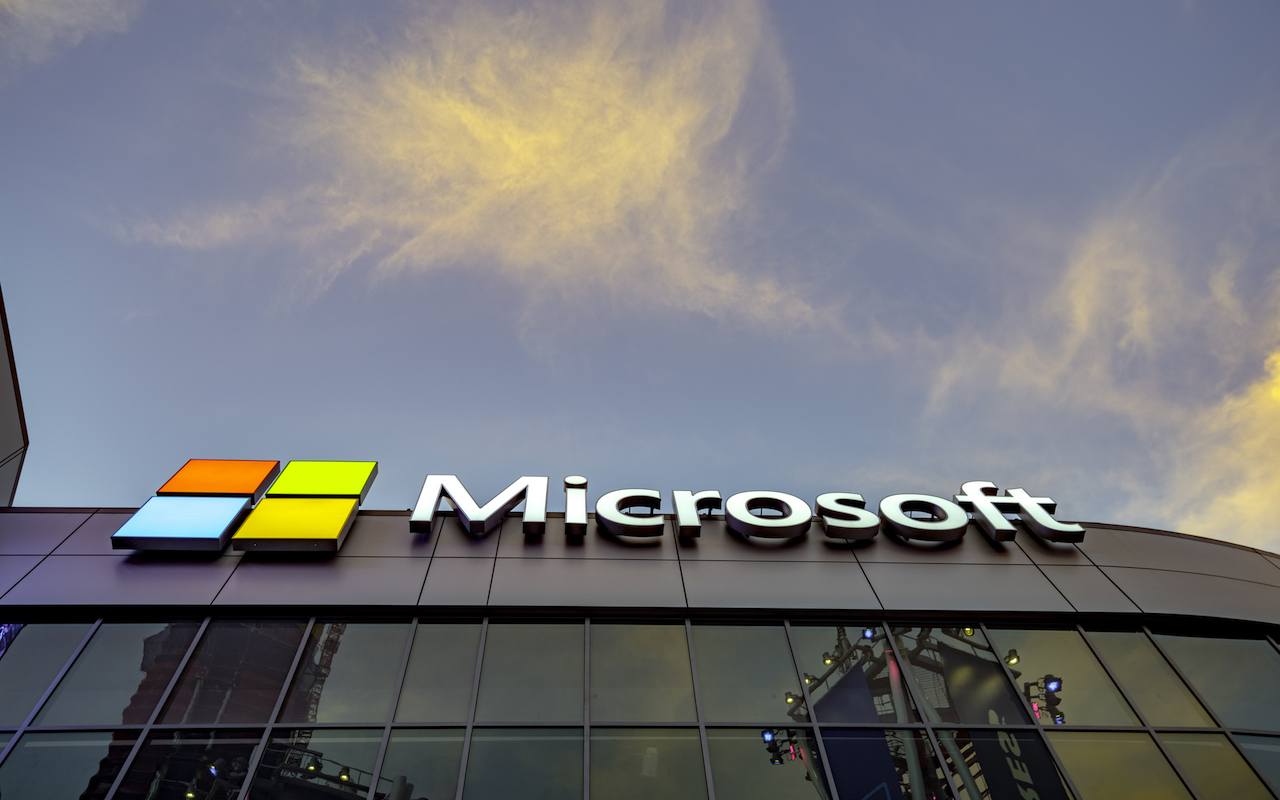
#1: Microsoft
- Market value: $779.1 billion
- Dividend yield: 1.6%
- Analysts’ opinion: 20 strong buy, 1 buy, 3 hold, 1 sell, 0 strong sell
Drumroll, please!
The most popular stock among actively managed mutual funds is Microsoft (MSFT, $100.85).
That’s right. Boring old Microsoft is more popular among mutual funds managers than Amazon, Apple, Alphabet or Facebook. The software giant’s transition to subscription-based services and cloud computing has re-ignited growth, and sentiment is soaring on the name.
How do we know this? Investors are forking over 25-times Microsoft’s projected earnings for a single share of its stock. As for Apple? It goes for just 14 times expected profits. Canaccord Genuity, which rates shares at “Buy,” points to accelerating growth in Microsoft’s cloud-based products such as Office 365 and Azure, as well as contributions from the Xbox gaming franchise as reasons to pay such a premium for shares.
Major mutual fund holders include American Funds Washington Mutual, T. Rowe Price Growth Stock, T. Rowe Price Value, T. Rowe Price Blue Chip Growth and T. Rowe Price Capital Appreciation.
Profit and prosper with the best of Kiplinger's advice on investing, taxes, retirement, personal finance and much more. Delivered daily. Enter your email in the box and click Sign Me Up.

Dan Burrows is Kiplinger's senior investing writer, having joined the publication full time in 2016.
A long-time financial journalist, Dan is a veteran of MarketWatch, CBS MoneyWatch, SmartMoney, InvestorPlace, DailyFinance and other tier 1 national publications. He has written for The Wall Street Journal, Bloomberg and Consumer Reports and his stories have appeared in the New York Daily News, the San Jose Mercury News and Investor's Business Daily, among many other outlets. As a senior writer at AOL's DailyFinance, Dan reported market news from the floor of the New York Stock Exchange.
Once upon a time – before his days as a financial reporter and assistant financial editor at legendary fashion trade paper Women's Wear Daily – Dan worked for Spy magazine, scribbled away at Time Inc. and contributed to Maxim magazine back when lad mags were a thing. He's also written for Esquire magazine's Dubious Achievements Awards.
In his current role at Kiplinger, Dan writes about markets and macroeconomics.
Dan holds a bachelor's degree from Oberlin College and a master's degree from Columbia University.
Disclosure: Dan does not trade individual stocks or securities. He is eternally long the U.S equity market, primarily through tax-advantaged accounts.
-
 Look Out for These Gold Bar Scams as Prices Surge
Look Out for These Gold Bar Scams as Prices SurgeFraudsters impersonating government agents are convincing victims to convert savings into gold — and handing it over in courier scams costing Americans millions.
-
 How to Turn Your 401(k) Into A Real Estate Empire
How to Turn Your 401(k) Into A Real Estate EmpireTapping your 401(k) to purchase investment properties is risky, but it could deliver valuable rental income in your golden years.
-
 My First $1 Million: Retired Nuclear Plant Supervisor, 68
My First $1 Million: Retired Nuclear Plant Supervisor, 68Ever wonder how someone who's made a million dollars or more did it? Kiplinger's My First $1 Million series uncovers the answers.
-
 Stocks Sink With Alphabet, Bitcoin: Stock Market Today
Stocks Sink With Alphabet, Bitcoin: Stock Market TodayA dismal round of jobs data did little to lift sentiment on Thursday.
-
 Nasdaq Slides 1.4% on Big Tech Questions: Stock Market Today
Nasdaq Slides 1.4% on Big Tech Questions: Stock Market TodayPalantir Technologies proves at least one publicly traded company can spend a lot of money on AI and make a lot of money on AI.
-
 Nasdaq Drops 172 Points on MSFT AI Spend: Stock Market Today
Nasdaq Drops 172 Points on MSFT AI Spend: Stock Market TodayMicrosoft, Meta Platforms and a mid-cap energy stock have a lot to say about the state of the AI revolution today.
-
 S&P 500 Tops 7,000, Fed Pauses Rate Cuts: Stock Market Today
S&P 500 Tops 7,000, Fed Pauses Rate Cuts: Stock Market TodayInvestors, traders and speculators will probably have to wait until after Jerome Powell steps down for the next Fed rate cut.
-
 S&P 500 Hits New High Before Big Tech Earnings, Fed: Stock Market Today
S&P 500 Hits New High Before Big Tech Earnings, Fed: Stock Market TodayThe tech-heavy Nasdaq also shone in Tuesday's session, while UnitedHealth dragged on the blue-chip Dow Jones Industrial Average.
-
 Dow Rises 313 Points to Begin a Big Week: Stock Market Today
Dow Rises 313 Points to Begin a Big Week: Stock Market TodayThe S&P 500 is within 50 points of crossing 7,000 for the first time, and Papa Dow is lurking just below its own new all-time high.
-
 Nasdaq Leads Ahead of Big Tech Earnings: Stock Market Today
Nasdaq Leads Ahead of Big Tech Earnings: Stock Market TodayPresident Donald Trump is making markets move based on personal and political as well as financial and economic priorities.
-
 11 Stock Picks Beyond the Magnificent 7
11 Stock Picks Beyond the Magnificent 7With my Mag-7-Plus strategy, you can own the mega caps individually or in ETFs and add in some smaller tech stocks to benefit from AI and other innovations.
